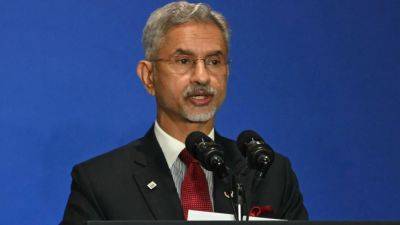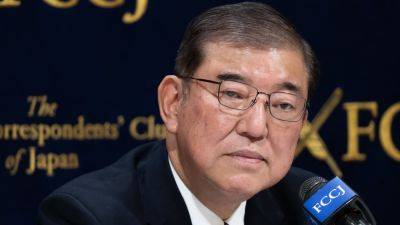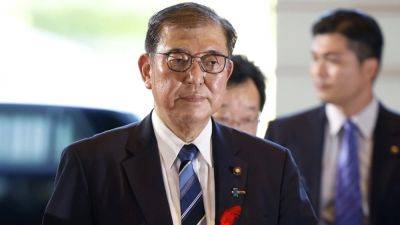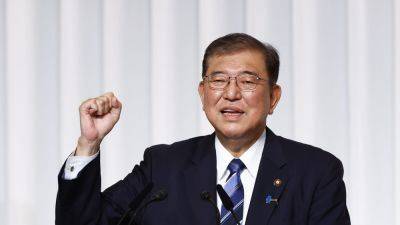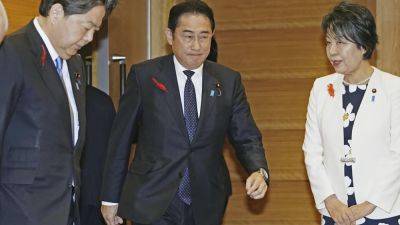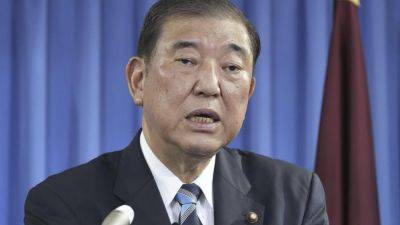Stocks fall, yen rises as Ishiba takes helm in Japan
Stock market investors and currency traders cheered when Sanae Takaichi, a protege of former prime minister Shinzo Abe and proponent of his stock market-friendly Abenomics, rose in polls and won the ruling Liberal Democratic Party’s (LDP) first-round presidential election last Friday.
In that first round, Takaichi received 181 votes, followed by Shigeru Ishiba with 154, Shinjiro Koizumi (backed by ex-premier Yoshihide Suga) with 136 and six other candidates who lagged far behind. Financial professionals, who had ranked Takaichi as their top choice in an Asahi newspaper poll, celebrated in advance.
The Nikkei 225 rose 1,959.30 points, or 5.2%, in two days to peak at 39,829.56 on Friday afternoon after the first-round vote. But investor hopes were dashed when Ishiba won the run-off, 215 to 194, to become party leader and almost certainly Japan’s next prime minister.
The Nikkei 225 Futures index dropped almost 6% in the after-hours session on Friday. The Nikkei 225 itself lost 1,910.01 points, or 4.8%, on Monday (September 30), falling back to 37,919.55.
Takaichi had endeared herself to stock market investors by openly declaring her opposition to higher interest rates. Like her late mentor Abe, she favors monetary easing and stronger fiscal stimulus.
To people shocked by the price of tomatoes and almost everything else these days, she said, “Economic growth comes first and foremost.”
Ishiba, on the other hand, supports Bank of Japan Governor Kazuo Ueda’s policy of gradually raising rates to stabilize the yen, which had been dropping like a rock, and tame inflation.
Ishiba also said that he would consider raising corporate and financial income taxes, which would make Japan’s tax system more equitable and reduce its large


